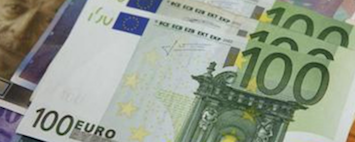Ireland’s tax receipts totaled €6.7 billion in January, up 24% on an annual basis and 13% higher than the pre-pandemic position in January 2020.
January is generally the largest month of the year for VAT receipts as it covers the Christmas trading period.
VAT receipts at €3.1 billion were 32% higher than January 2021, although the annual comparison is distorted due to the introduction of public health restrictions in late 2020.
VAT receipts were up 15% compared to the same period in 2020.
Income tax receipts remained robust at €2.6 billion in January, up 13% on an annual basis and 18% on the pre-pandemic position in January 2020.
Ireland’s National Treasury Management Agency (NTMA) web site currently says Ireland’s Gross National Debt was €243.1 billion at the end of January.
Minister for Finance Paschal Donohoe said: “Today’s figures show that the strong momentum in tax receipts has continued into the start of this year.
“While annual comparisons flatter the performance of tax receipts, the underlying trends are a positive sign of the strength of the domestic economic recovery.
“VAT receipts reflect the significant rebound in consumer spending and the ongoing recovery in the labour market continues to drive the strong income tax performance.
“Since the pandemic began, the Government’s approach has been to support the economy through a counter-cyclical budgetary policy to mitigate the effects of the Covid-19 outbreak.
“This has led to a significant increase in public debt which is now approaching a quarter of a trillion euros, the equivalent of €47,500 per capita, a figure that is amongst the highest in the developed world.
“The fiscal cost of the pandemic has been enormous but this is a cost that has been worth bearing. The Government’s approach has worked well, and Government has established the foundations for the strong domestic recovery seen to-date.
“With private demand now accelerating rapidly and supply bottlenecks already evident in some sectors, it is essential to slow the growth rate of public demand in order to avoid overheating the economy; counter-cyclical budgetary policy works in both directions”.
The Minister for Public Expenditure and Reform, Michael McGrath, said: “This January saw public expenditure of almost €6 billion, this reflects the continued support of people, public services and the economy throughout the challenges of the pandemic.
“Social protection continues to make a strong contribution through Covid supports including the Employment Wage Subsidy Scheme at a cost of €279 million and the Covid Illness Benefit at almost €75 million in January 2022.
“This Government has taken a prudent approach in Budget 2022, with €3.1 billion in additional funding for measures to address the challenges of Covid allocated to departments’ estimates for the year and a further €3.9 billion held in reserve.
“This has ensured that the necessary resources are available to implement a responsive approach to the challenges of Covid in January and throughout 2022 as required.
“This support is critical to the safe reopening of our economy and society as we emerge from the pandemic.
“Budget 2022 provided for significant investment in our public services with €80.1 billion allocated in core spending.
“As the year continues, we will see this expenditure lead to sustainable improvements in public services, while supporting a reduction in the deficit and placing our public finances on a sustainable path once again.
“Our capital budget of €12 billion in 2022 will see the continued rollout of vital infrastructure projects under the National Development Plan 2021-2030.”
